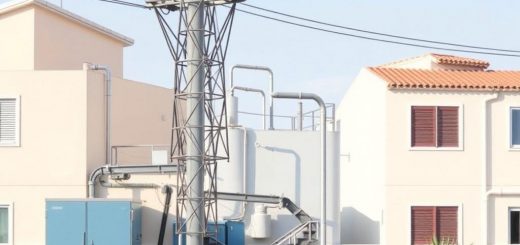Pest Control for Cyprus Properties: Prevention and Treatment
Understanding the Unique Pest Challenges in Cyprus
Cyprus, with its warm Mediterranean climate and diverse ecosystems, faces distinct pest challenges that impact both residential and commercial properties. The island’s temperatures and humidity levels create a favorable environment for a variety of pests including insects, rodents, and termites. These pests not only threaten property integrity but also present health risks to residents and visitors alike. Effective Cyprus pest control requires a nuanced understanding of the local pest species, seasonal behaviors, and ecological conditions.
The most common pests encountered across Cyprus properties include cockroaches, ants, mosquitoes, bedbugs, rodents, and termites. Their presence is often seasonal but can become year-round in certain microclimates, especially in urban areas with dense human activity. Beyond nuisance, these pests can damage wooden structures, contaminate food supplies, and contribute to allergic reactions or disease transmission. Property owners must therefore invest in proactive and responsive pest management strategies tailored to Cyprus conditions.
In addition to biological factors, human activities like improper waste management, poor sanitation, and structural neglect can exacerbate pest problems on the island. For instance, clogged drainage systems and accumulated debris provide breeding grounds for mosquitoes, while cracks in buildings offer entry points for rodents and insects. Understanding these environmental and anthropogenic factors is key to designing effective property pest management Cyprus strategies.
Your coastal and urban Cyprus properties are especially vulnerable to persistent pest threats due to climate and environmental conditions.
Essential Components of Property Pest Management Cyprus
Property pest management in Cyprus involves a comprehensive approach balancing prevention, monitoring, and treatment. The objective is not only to eliminate existing infestations but to implement sustainable practices that minimize future outbreaks. This systematic methodology involves several integrated components.
Regular inspections constitute the cornerstone of effective property protection Cyprus. Trained professionals conduct thorough examinations of the property interior and exterior, identifying potential pest entry points, breeding areas, and signs of infestations. These inspections determine the pest species involved and their population status, guiding targeted intervention.
Monitoring plays a supplementary role, employing traps, sensors, and visual checks to track pest activity over time. This data-driven approach enables early detection of pest threats, making pest treatment Cyprus more efficient and less invasive. Monitoring also helps evaluate the success of previous control measures.
Prevention strategies focus on reducing attractants and access for pests. This involves sanitation practices that eliminate food and water sources, structural repairs to seal entry points, and landscaping modifications to remove pest harborage around the property. Home pest prevention Cyprus specifically emphasizes these methods to protect residential environments.
When interventions are necessary, pest control techniques are selected based on the pest type, infestation severity, environmental considerations, and occupant safety. Chemical treatments, biological controls, and mechanical methods all play roles in the overall pest management plan.
Effective pest management in Cyprus hinges on regular inspections and data-driven monitoring combined with strategic prevention.
Common Pest Species and Their Impact on Cyprus Properties
Identifying the pest species common to Cyprus properties is critical to choosing the right treatment approaches. Each species has specific behaviors, life cycles, and vulnerabilities that influence management techniques.
Cockroaches are prolific in Cyprus urban environments, thriving in kitchens, bathrooms, and drainage systems. Their presence compromises hygiene and may trigger allergic reactions and asthma. Ants, particularly the Pharaoh ant, can invade food stores and nested electrical wiring, causing damage and contamination.
Mosquitoes are highly prevalent due to Cyprus’s warm climate and standing water sources. Besides being an irritant, they are vectors for diseases such as West Nile Virus. Bedbugs have seen a resurgence, often hitchhiking on luggage, infesting furniture, and causing skin irritations.
Rodents, including rats and mice, pose significant property protection Cyprus challenges. They gnaw on wiring, insulation, and wooden structures, leading to costly repairs and fire hazards. Termites, while less noticeable, are notorious for their destructive capacity, slowly consuming wooden beams and subfloors, which compromises structural safety.
Each of these pests demands a customized approach that combines chemical, mechanical, and environmental controls to achieve eradication and long-term prevention.
| Pest Species | Common Habitats | Impact on Property | Typical Treatment |
|---|---|---|---|
| Cockroaches | Kitchens, drains, sewers | Hygiene issues, disease transmission | Baits, insecticides, sanitation |
| Ants | Food storage areas, electrical conduits | Food contamination, wiring damage | Gel baits, sprays, sealing entry |
| Mosquitoes | Standing water, gardens | Disease vector, irritation | Larvicides, fogging, eliminating breeding sites |
| Rodents | Basements, attics, gardens | Structural damage, fire risk | Traps, rodenticides, exclusion |
| Termites | Wooden structures, soil near foundations | Structural damage, costly repairs | Soil treatments, fumigation, bait systems |
Each pest species present in Cyprus demands specialized treatment plans tailored to their unique behavior and habitat.
Home Pest Prevention Cyprus: Practical Measures for Property Owners
Preventing pest infestations in Cyprus homes begins with a proactive mindset. Homeowners and property managers can significantly reduce infestation risk by implementing straightforward, practical measures rooted in sanitation, maintenance, and environmental modification.
First, maintaining cleanliness is fundamental. Regularly cleaning kitchen surfaces, promptly disposing of food waste in sealed containers, and avoiding clutter reduces attractants for pests such as cockroaches and ants. Bathrooms and damp areas must be kept dry to deter moisture-loving pests.
Structural upkeep is equally important. Cracks and gaps around windows, doors, foundations, and plumbing corridors must be sealed. Installing door sweeps and window screens prevents entry of flying insects and rodents. Gutters and drainage systems should be kept clear to avoid standing water, minimizing mosquito breeding grounds.
Landscaping around the property should discourage pest harborage. Trimmed shrubs and removal of dense ground cover prevent rodents and insects from nesting too close to buildings. Compost piles should be managed properly or located far from the residence.
Regular monitoring by the homeowner includes looking for signs such as droppings, chewed wiring, or unusual smells. Early detection facilitates timely pest treatment Cyprus interventions.
A typical checklist for home pest prevention Cyprus might include:
- Sealing all cracks and entry points
- Regular waste disposal and cleaning
- Fixing leaks and reducing humidity
- Keeps gardens trimmed and debris-free
- Installing physical barriers like screens and door sweeps
- Removing standing water sources
Good sanitation, architectural maintenance, and environmental management form the basis of effective home pest prevention in Cyprus.
Pest Treatment Cyprus: Selecting the Right Approach
When pest infestations occur despite preventive efforts, timely and appropriate pest treatment Cyprus options are necessary to protect property and health. Treatment selection depends on the pest type, infestation extent, and environmental considerations.
Chemical treatment is common, especially for stubborn infestations. Insecticides, rodenticides, and termiticides can quickly reduce pest populations. However, professional application is critical to ensure correct dosage, placement, and safety of occupants and pets. Overuse or incorrect use of chemicals can cause resistance or environmental contamination.
Biological control involves using natural predators, parasites, or pathogens to suppress pest populations. For example, introducing certain beneficial nematodes can control soil-dwelling larvae. This method is environmentally friendly but may take longer to see results.
Mechanical and physical controls include trapping, exclusion techniques, heat treatment, and vacuuming. Mechanical traps for rodents or sticky traps for insects aid in removing pests without chemicals. Heat treatment can be particularly effective against bedbugs by raising room temperatures to lethal levels.
Integrated Pest Management (IPM) is the gold standard in Cyprus pest control, combining these methods for minimal environmental impact and long-term efficacy. IPM emphasizes accurate pest identification, continuous monitoring, and targeted treatment only when necessary.
The following table summarizes pest treatment methods and their typical applications:
| Treatment Method | Application | Advantages | Limitations |
|---|---|---|---|
| Chemical Insecticides | Cockroaches, ants, termites | Fast action, widely available | Risk of resistance, environmental impact |
| Rodenticide and Traps | Rodents | Effective for elimination | Safety concerns, non-target risks |
| Biological Controls | Soil pests, some insects | Eco-friendly, sustainable | Slower results, specific target pests |
| Heat and Physical Methods | Bedbugs, insects | No chemicals, immediate effects | Requires specialized equipment |
The best pest treatment Cyprus plans integrate multiple methods, maximizing effectiveness while minimizing harm.
Property Protection Cyprus: Long-Term Strategies for Sustainable Control
Sustained property protection in Cyprus requires long-term strategies that go beyond emergency responses and periodic treatments. These strategies emphasize resilience and ongoing vigilance.
First, education is vital. Property owners should understand pest biology, risk factors, and early warning signs. Engaged occupants are better positioned to maintain preventive measures.
Secondly, adopting Integrated Pest Management at a strategic level ensures that pest control efforts are environmentally responsible and economically viable. This involves scheduled inspections, routine monitoring devices, and proactive sanitation.
Another dimension of long-term property protection Cyprus involves architectural and landscaping design. Building materials resistant to termite damage, physical barriers for rodents, and landscaping techniques that reduce pest habitats all contribute to durability.
Collaborating with professional pest control providers in Cyprus enables access to expertise, resources, and the latest technologies. Tailored pest management contracts ensure systematic care and rapid response when needed.
Finally, regulatory compliance with local health and safety standards forms part of property management best practices. This guarantees that pest control measures meet environmental laws and protect community health.
Sustainable property protection in Cyprus hinges on knowledge, integrated management, design, and professional collaboration.
Future Trends in Cyprus Pest Control and Property Management
The field of pest control in Cyprus is evolving, driven by technological advances, environmental awareness, and regulatory changes. Emerging trends promise more effective, eco-friendly, and precise methods for property pest management Cyprus.
Innovations such as remote sensing technologies, AI-assisted pest monitoring, and smart traps enable real-time data collection and predictive analytics. These allow for rapid identification of pest activity and targeted interventions, reducing unnecessary chemical use.
Biotechnological advances include the use of genetically modified organisms or pheromone disruption techniques to control insect populations naturally. Such methods hold potential to minimize environmental impact while maintaining efficacy.
Sustainable pest control solutions that emphasize organic and non-toxic substances are also becoming more popular among Cyprus homeowners who seek health-conscious property protection Cyprus options.
Integrated community approaches that engage neighborhoods in cooperative pest monitoring and management could transform how infestations are prevented and controlled on a larger scale.
Despite these advancements, the core principles of effective pest control—inspection, monitoring, prevention, and treatment—remain. Future developments will likely enhance these fundamentals rather than replace them.
Technological and ecological innovations are shaping the future of pest control in Cyprus, offering smarter and greener solutions.
Pest Control for Cyprus Properties: Mastering Prevention and Treatment Today
The complexity of pest challenges in Cyprus demands a balanced and well-informed approach to property protection Cyprus. Preventing pest infestations through proper sanitation, structural maintenance, and environmental management remains essential. Yet, when infestations arise, a tailored pest treatment Cyprus plan that combines chemical, biological, and mechanical methods ensures swift and lasting results.
Property owners benefit most when partnering with experienced professionals who understand local pest dynamics and can implement integrated pest management strategies. Such collaboration provides not only immediate relief but also cultivates long-term resilience against recurring infestations.
Ultimately, mastering pest control for Cyprus properties hinges on vigilance, knowledge, and adaptability. With these tools in hand, residents and property managers can safeguard their investments, health, and comfort against the persistent threat of pests in this unique Mediterranean environment.
Property pest management in Cyprus is an ongoing commitment requiring knowledge, vigilance, and integrated strategies for lasting success.
Frequently Asked Questions
- What are the most common pests affecting properties in Cyprus?
Cockroaches, ants, mosquitoes, rodents, bedbugs, and termites are among the most common pests impacting Cyprus properties. - How often should I have my property inspected for pests in Cyprus?
It is recommended to schedule professional inspections at least twice a year, ideally before and after the hot, wet seasons. - Can I prevent pest infestations without using chemicals?
Yes, home pest prevention Cyprus techniques focusing on sanitation, sealing, and environmental management can significantly reduce infestations without chemicals. - Are pest control chemicals safe for children and pets?
When applied by professionals using approved products and protocols, pest treatment Cyprus chemicals can be safe. User caution and temporary area restrictions are important. - How long does termite damage take to occur in Cyprus properties?
Termite damage can develop over months to years but may go unnoticed until severe structural compromise occurs, emphasizing the need for early detection. - Is Integrated Pest Management (IPM) available for Cyprus properties?
Yes, many Cyprus pest control providers offer IPM services combining monitoring, prevention, and targeted treatments for sustainable control. - What should I do if I notice signs of rodents or insects in my home?
Contact a professional pest control service promptly for inspection and treatment advice to prevent escalation.



